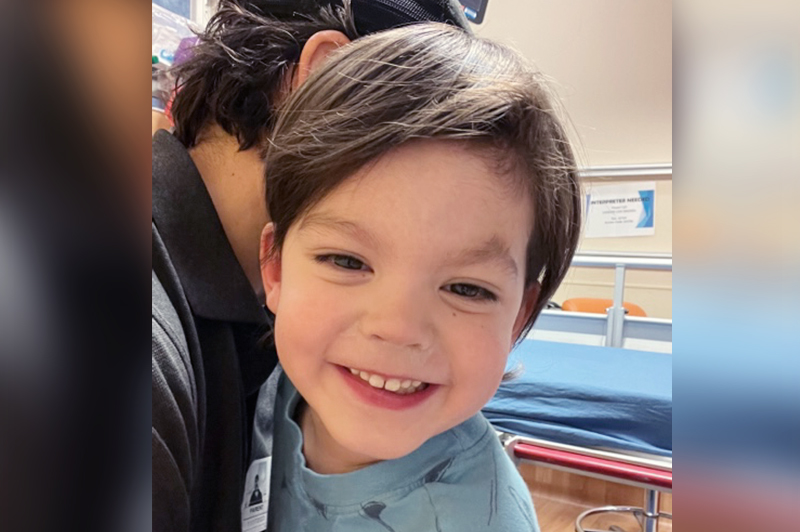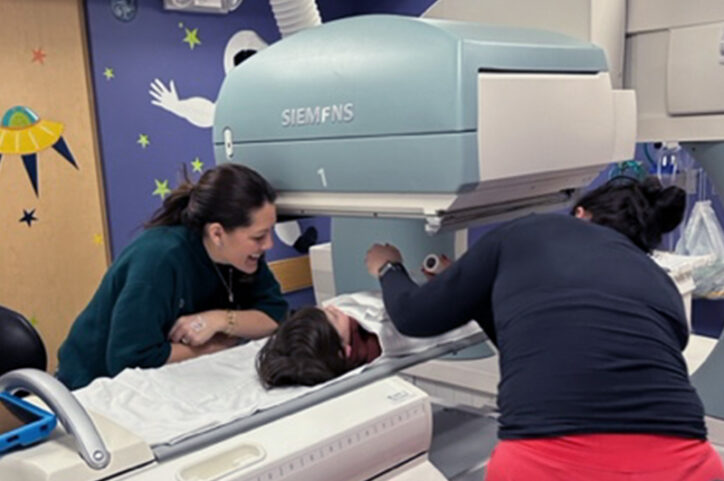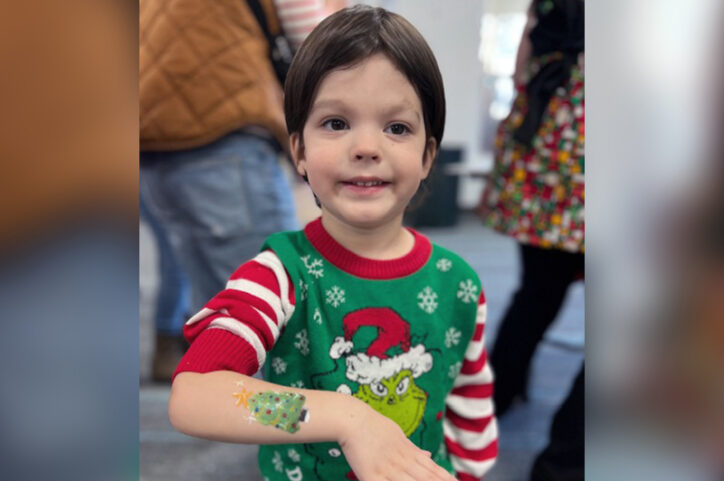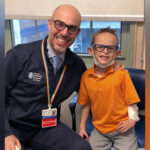‘Part of the process’: How a second opinion helped Wynn take control of bladder function

Wynton “Wynn” Smith-Webb is “the most inquisitive kid you’ll ever meet,” laughs his mother, Amber. At just 3 years old, he’s intrigued by science, nature, travel, and even medicine. It’s a mindset he might have picked up from Amber, a professor who says she lives “knee-deep” in data every day. So when Wynn recently began experiencing urinary tract infections (UTIs), the first question on the family’s lips was, “Why?”
Because recurrent UTIs in boys can be a sign of a larger problem, doctors typically recommend further testing to rule out an underlying structural anomaly or blockage. Recurrent UTIs can also increase the likelihood of kidney damage, a risk that concerned doctors at Wynn’s local hospital in Texas. But when the Amber and her husband, Dave, were told that a major surgical procedure might be the only solution, they were spurred to action.
“It seemed like we didn’t have any good treatment options that wouldn’t have a massive effect on Wynn’s quality of life,” says Amber. “We decided to seek a second opinion.”
Data and diagnostics
Led by her desire for data, Amber began learning more about the tests used to evaluate recurrent UTIs. She discovered that urodynamics — a group of tests that evaluate how well a child’s body collects, and then releases, urine — might shed more light on the roots of Wynn’s problem. As she researched more, she found that Boston Children’s offers one of the most comprehensive urodynamics programs in the country and has been a pioneer in the area of needle electromyography.
With this knowledge and at the recommendation of several doctors around the country, the Smith-Webb family settled on Boston Children’s.
The family arrived in Boston in January. “It was the beginning of the year, it was cold, and we had this daunting situation looming over us,” Amber remembers. “We felt apprehensive and nervous. Everything seemed very high stakes.”

‘Next level’ care
Once the testing began, however, that apprehension began to ease. Although urodynamics can be uncomfortable, Amber and Dave felt confident that Wynn was in good hands.
“We knew Boston Children’s expertise was world class, but the bedside manner was next level,” says Amber. Knowing that Wynn was nervous, Dr. Hatim Thaker “spent so much time talking to him before and during the tests. He and the rest of the team made us all feel so safe.”
Amber believes that this gentle, unrushed approach helped the team get the best data possible to assess Wynn’s condition. Based on this information, Dr. Carlos Estrada, chief of the Department of Urology, and his colleagues concluded that Wynn’s condition likely had non-neurogenic roots, avoiding serious surgery for the family. They felt that the voiding dysfunction, or inability to empty the bladder, that Wynn was experiencing may be improved through continued behavioral modifications.
“We loved that Dr. Estrada took Wynn’s case to their weekly conference and that he and his colleagues discussed it as a team,” says Amber. That team included Dr. Stuart Bauer, a pioneer in the research of bladder function.

Trusting their instincts
While previous doctors had said that behavioral changes wouldn’t help and that surgery was the only answer, the family was heartened to learn that Wynn’s lower urinary tract was showing progress. Weeks of bladder retraining had helped him begin healing, and Dr. Estrada didn’t believe surgery was immediately necessary. Instead, he supported the approach that the Smith-Webbs had been taking, including putting Wynn on a schedule of urination and hydration. Moreover, if surgery would become necessary in the future, Dr. Estrada put forward an option that would still help Wynn maintain a good quality of life.
“We were basically trying behavioral changes out of desperation before we got to Boston,” explains Amber. “But by the time Wynn was tested, his bladder was in much better shape. Dr. Estrada told us, ‘He’s looking good, and I trust you as parents.’ We really appreciated that.”
Today, Wynn and his parents are back in Dallas, where their local team keeps an eye on his urinary tract through regular ultrasounds. And Wynn is interested in the results, too. “He wants to know everything that’s going on in his body,” says Amber. Thanks to a Christmas gift of a toy medical kit, he’s not afraid of doctors. “We wanted to make things less scary for him — now he feels like he’s part of the process.”
Learn about the Urodynamics Program and the Department of Urology.
Related Posts :
-

One day closer: Second opinion for urologic pain changes Iker’s life at last
Like many kids, Iker Guzman enjoys playing with LEGO toys. But there was nothing lighthearted about the day a few ...
-

‘Another level of care’: Second opinion solves Joey’s rare urologic condition
When Max and Shana arrived at Boston Children’s Hospital last year with their young son, Joey, their care team “...
-

Building a better bladder: Reconstructive urologic surgery helps Mikey thrive
When Mikey Tibbetts’ parents, Johanna and Matt, take him trick-or-treating, the process can last for hours. “He knows everyone and ...
-

On her own terms: Robot-assisted procedure gives Sage more independence
At 19, Sage Nault has had multiple surgeries, aimed at addressing challenges related to myelomeningocele, the most severe form of spina ...





